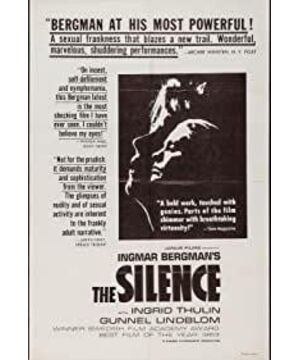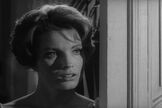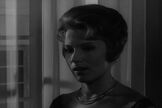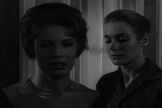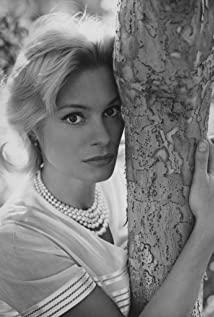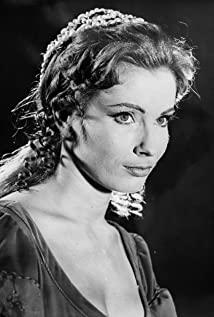Reading too many deciphered texts in advance may actually damage your own "original ecology" feeling. If you have to interpret it in religious terms, I really don't have much to grow up in an atheistic environment. In fact, once a work is published, it no longer belongs to the creator, and viewers have their own interpretations. And the greater the work, the more ambiguous it is, and the more room for interpretation, even if it is a misunderstanding of a different culture.
Just like "Winter Light", which is also a "silent trilogy", Ingmar himself said that he took an attitude of contempt for the country priest, and I only saw the doubts and loneliness that people should believe but cannot believe. Being obliged to ferry, but losing himself in distress. The same is true for this drama. I don't care about God or not, I only see the tension between the two sisters. Both of them have mental deficiencies. The older sister has always been an oppressive existence to the younger sister. Those born in a family with many children should have experienced the delicate competitive relationship between brothers and sisters, which originated from childhood. Inequality can even last a lifetime. The elder sister is dignified, smart, hardworking, and always correct, and seems to automatically take on the duties of guardianship and supervision. In their dialogue, the father is mentioned but the mother is not mentioned, as if there is a hint that the mother is absent. Perhaps this is Why did my sister take her mother's job? But her body is fragile, which contrasts with her sexy sister.
In the sister's indulgence, there is no subconscious rebellion against her sister. You don't want me to do what I want to do. I think most of us have had this kind of reaction when facing the power of representing authority. But while the younger sister was indulging, she actually fell into self-contemptuous self-blame, otherwise she would not be "poor Anna" when her sister stroked her head-the sister was still strong in spirit, and won again-younger sister Stimulate her and resist her in her own way, but this time she was defeated again.
I believe that this kind of "competition" has never stopped during the growth of the sisters. Therefore, when the sister is dying, the sister can still cruelly abandon her and wait for her death alone in the nameless and lonely town, letting Yu slap herself fiercely. His face, even if she wanted to read what she wrote to her son, but didn't want to hear it.
Two women and a child, due to accidental reasons, had to stop in a vacant town on the way back home. The most obvious metaphor is that the language is unreasonable. Language was originally a tool for communication, but of course it often became a weapon for harming each other. Although they can’t understand each other’s words, they can appreciate each other’s kindness-the old man took the picture and told the story to the little boy, how touching, a lingering old man told a little boy about his thoughts, and even leaned on it. On his shoulders, as if it were relying on. Words are still a barrier. Anna tells the resentment towards her sister to the man who meets and meets in love from the street. He obviously neither understands nor wants to understand. He just wants to hurry up and do as many animal pistons as possible. Music is also a language—how much Ingmar loves Bach, and Bach’s music is the artist with the most collaborations in his films—Bach’s music plays on the radio, and the old man, sister, and sister are all very happy. stand up.
The boy witnessed his mother's affair, which may be a replay of the director's own childhood experience.
In my opinion, Ingmar has been healing his wounds all his life. He has distributed countless avatars of himself in many of his roles. He is both the victim and the abuser. He is eager to love him and be stingy...
View more about The Silence reviews


